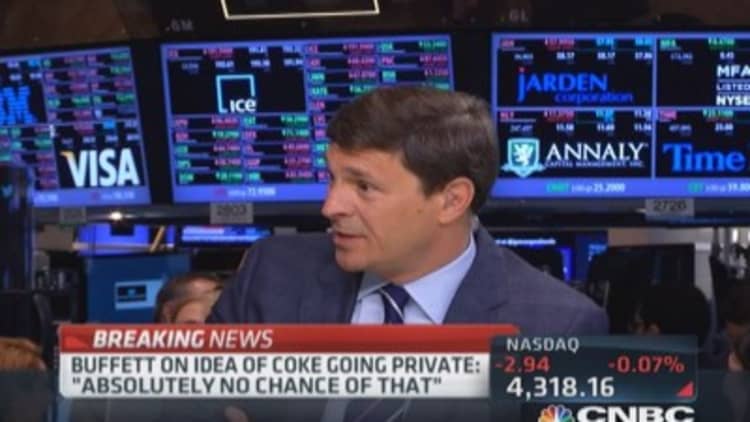New Yorkers can now sip their super-sized sodas without worry.
Former New York City Mayor Michael Bloomberg's plan to limit the sale of large sugary drinks was rejected on Thursday by the state's highest court, which ruled the local health board overstepped its authority in approving the regulation.
The 4-2 ruling from the state Court of Appeals upheld two lower court decisions from last year, siding with the soft drink, restaurant and movie theater industries, which had challenged the law.
"By choosing among competing policy goals, without any legislative delegation or guidance, the Board engaged in law-making and thus infringed upon the legislative jurisdiction of the City Council,'' wrote Judge Eugene Pigott for the majority.
The law, which was struck down by a state judge in March 2013 one day before it was to take effect, would have barred restaurants, movie theaters and other businesses from selling sugary beverages larger than 16 ounces (473 ml).
Read More
The decision Thursday ended the city's final appeal, which was taken up by Bloomberg's successor, Bill de Blasio. But the so-called "soda ban'' remained closely associated with Bloomberg, who had previously banned cigarettes from parks and bars and trans fats from restaurants in a broad effort to combat public health problems through regulation.
The soda ban, the first of its kind in the United States, drew national attention, with critics blasting Bloomberg's "nanny state'' and public health advocates praising the attempt to fight obesity.
In a statement, de Blasio said he was disappointed but that officials have a "responsibility to address the causes of this epidemic.''
A spokesman for the American Beverage Association, which led the legal challenge and includes members like PepsiCo, Coca-Cola and Dr Pepper Snapple, said the law "would have created an uneven playing field for thousands of small businesses in the city and limited New Yorkers' freedom of choice.''
Steve Anastos, the manager of City Diner on Manhattan's Upper West Side, said he supported the decision because "people can drink whatever they want.

The court focused on the law's loopholes, which exempted businesses not subject to the health board's authority and left untouched certain drinks, such as milk-based beverages.
As a result convenience stores such as 7-Eleven, which sells a 64-ounce Big Gulp drink, were unaffected. Likewise, high-calorie coffee drinks like Starbucks' Frappuccinos remained exempt from the ban.
The decision could also curtail the board's power in the future to enact sweeping health initiatives.
In a dissenting opinion, Judge Susan Read said the health board acted properly and any challenge belonged in the political arena, not the courts.
"What petitioners have truly asked the courts to do is to strike down an unpopular regulation, not an illegal one,'' she wrote. "But if that is so, eliminating, limiting, or preventing it via political means should present little obstacle.''
--By Reuters

